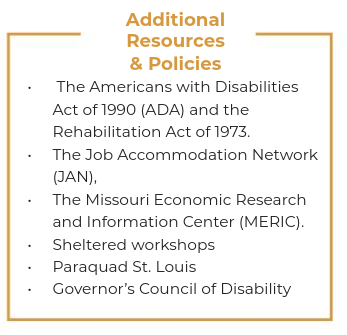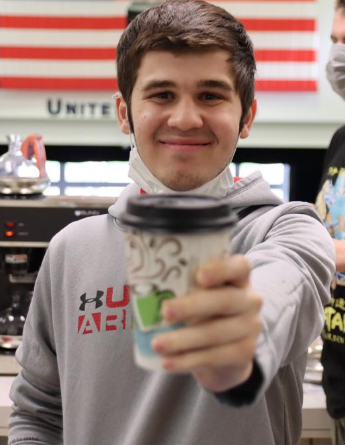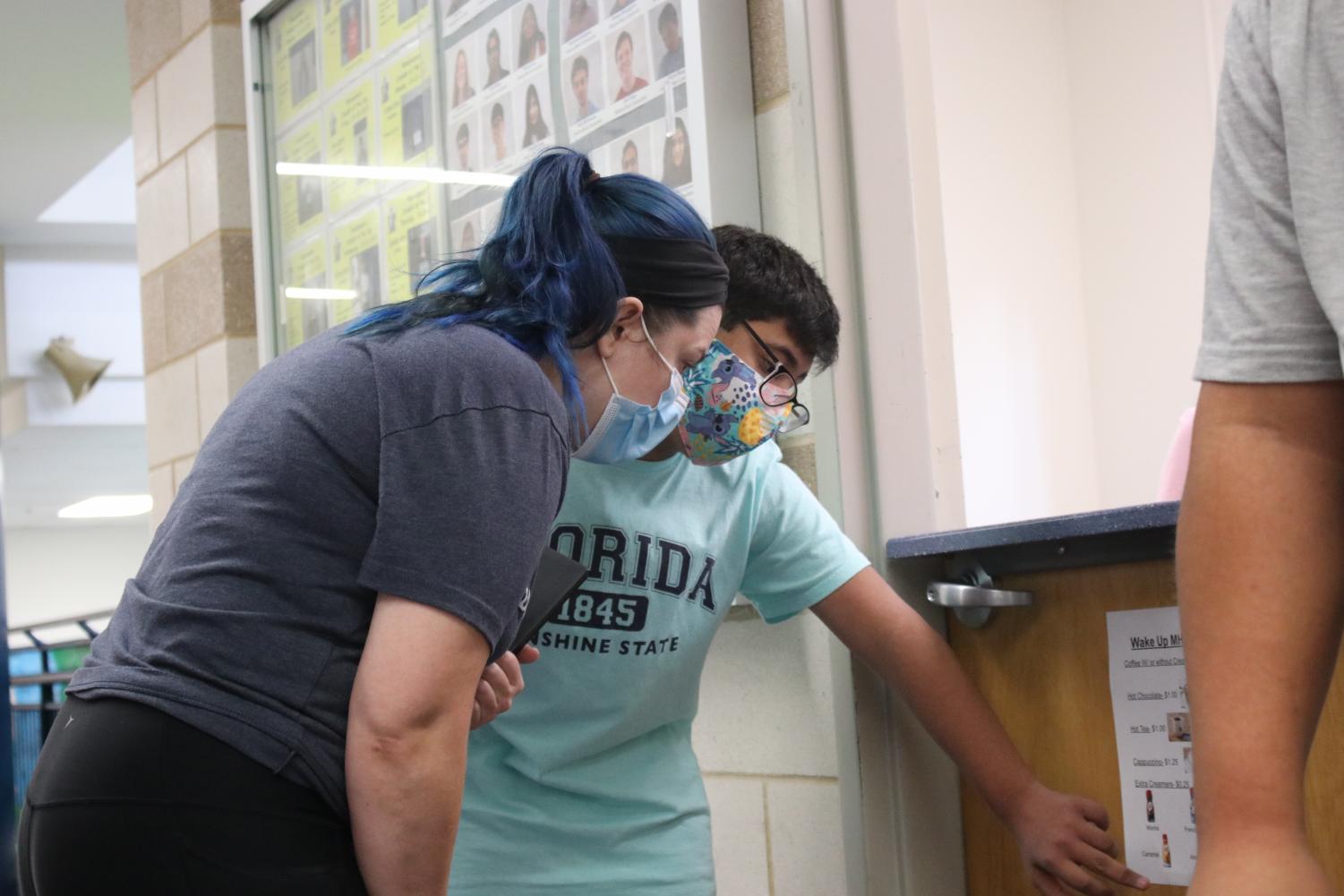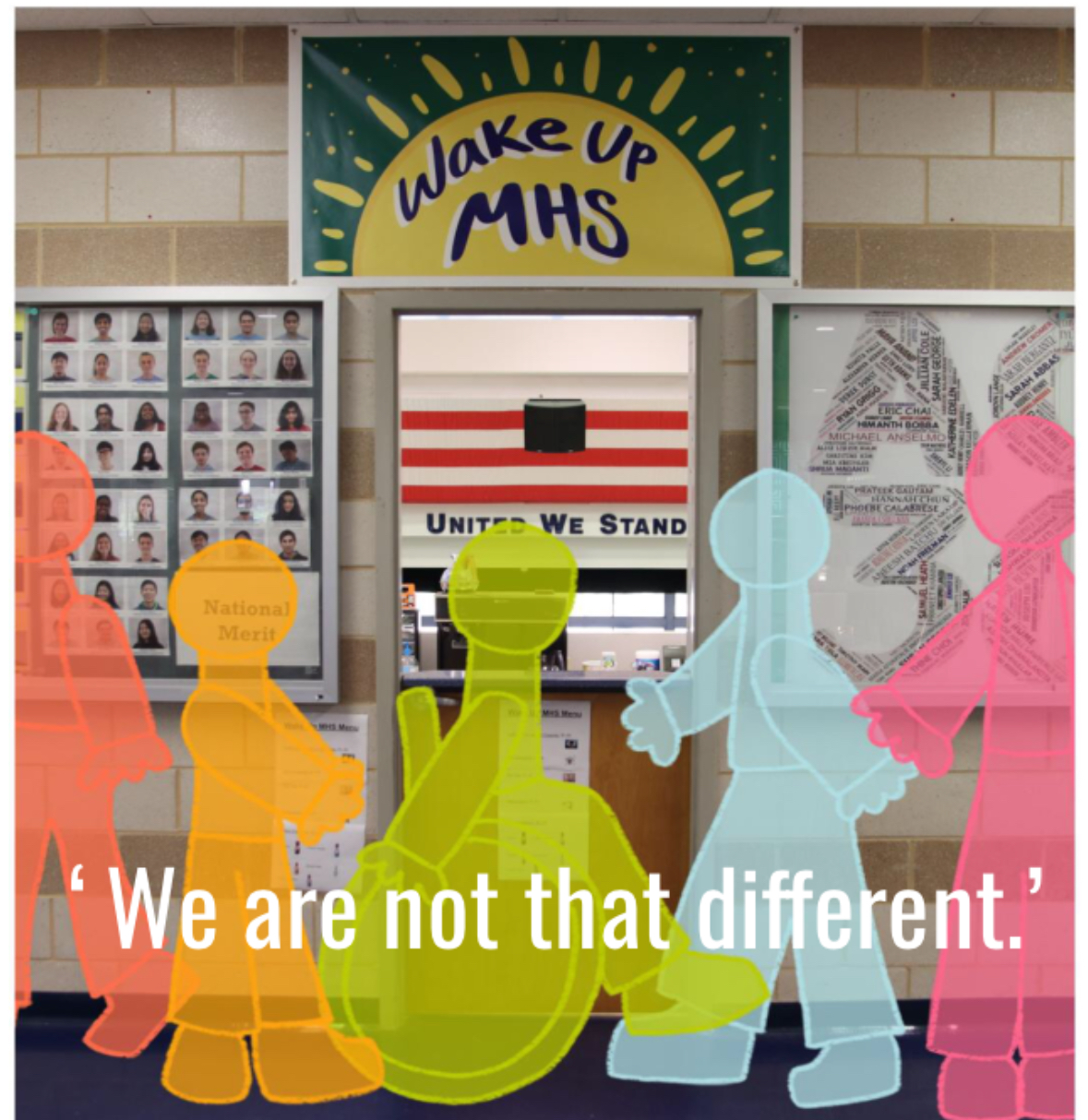Your donation will support the student journalists of Marquette High School. Your contribution will allow us to purchase equipment and cover our annual website hosting costs. You may become a PATRON by making a donation at one of these levels: White/$30, Green/$50, Blue/$100. Patron names will be published in the print newsmagazine, on the website and once per quarter on our social media accounts.
In-Depth: Students, Staff Celebrate Disability Inclusion
“People with disabilities represent the biggest minority in the world. It is a minority that any one of us can suddenly become a part of. They are very under-represented in the workplace but people with disabilities are the largest group of untapped talent,” Kimberly Chaplin, district supervisor of the St. Louis Downtown Vocational Rehabilitation Office, said.
October 24, 2021
As of 2021, 22.36 percent of people with a disability are employed, according to the U.S. Bureau of Labor Statistics.
October is National Disability Employment Awareness Month (NDEAM), a month to celebrate the contributions individuals with disabilities bring to the workplace.
MHS Special Education Administrator Dr. Stacy Heuberger said RSD is celebrating NDEAM on a district level by highlighting on the district’s main website stories from all over the district that are disability specific.
“The importance of celebrating disability awareness is to teach people that there is a large scope of disabilities,” Dr. Heuberger said. “Often, people only think of individuals in wheelchairs or individuals who are nonverbal. But, there is a vast array of disabilities and abilities that are important for people to be educated on.”
To help students with employment after high school, Dr. Heuberger said RSD and Special School District (SSD) work in tandem to guide students with disabilities through a comprehensive program designed to suit their personal goals and needs.

“When kids are younger, we focus more on academic skills,” she said. “As they get older, so late in elementary and middle school, the focus is transitioning to life after high school.”
Dr. Heuberger said the greatest challenge individuals with disabilities face upon entering the workforce is bias and a lack of understanding from employers.
“While it may take someone with a disability a bit longer to do certain jobs, it does not mean they are incapable of doing it,” she said. “Sometimes people need a little extra time or support regardless of whether or not they have a disability.”
SSD’s Parent Education & Diversity Awareness Program provides parents of students with disabilities guidance about Individualized Education Plan (IEP) meetings, navigating life after high school and other resources.
“We are always there to help out in whatever way we can and give our students and families the support they need,” Dr. Heuberger said.
LIVING WITH A DISABILITY
For sophomore Harsh Bains, who uses a wheelchair, the most important part of celebrating disability awareness is ensuring individuals with disabilities feel included.
“We don’t necessarily want to be treated as different and receive special attention,” Bains said. “Really, we want to feel part of the pack because we are not that different.”
Bains said MHS and RSD have been both accessible and inclusive of his needs, providing him with a physical therapist, academic resources, college and career guidance and more.
As someone who has always been tech savvy and resourceful, Bains said he is confident his disability will not hinder him in his pursuit of a career in computer science after graduation.
“Some employers may be paranoid by looking at someone with a disability’s physical capabilities,” Bains said. “But what really matters is that person’s integrity and capability.”
Junior Richard (Richie) Tienter, who is blind, echoes Bains’ statement.
“People with disabilities have just as much potential as anybody else,” Tienter said. “We just need to accommodate them so they can get around their disabilities and live up to their full potential.”
Tienter said the Gifted Resource Office, his teachers and his parents have all been helpful to him in planning for his career and succeeding academically.
He would like to be a history professor and said that being able to take Advanced Placement (AP) classes and their respective AP exams have helped him feel more confident in his future.
“I don’t think my disability blocks me from achieving my goals, provided the right accommodations are granted to me,” Tienter said. “Very little separates me from my classmates besides the fact that I use a white cane to get around school and sometimes have a person to assist me.”
PARENT PERSPECTIVE
Ann Tienter, Richie’s mother, said SSD and the St. Louis Society For The Blind have been helpful to her in navigating high school and finding resources to support Richie.
Though at first Richie did not have all the appropriate accommodations needed to reach his full potential, she said working with the Gifted Resource Office has been significant in the process of advocating for changes as well as in their search for scholarship opportunities.
Ann Tienter said the biggest advice she has for other families of students with disabilities is to support their children as much as they can.
“Your kid’s success is important, but so is them failing sometimes,” she said. “Our job as parents is to put things into perspective for our kids and make sure they understand that they are supported and capable.”
When she was in high school, Ann Tienter said, there was little integration of special education students and other students. She said having Richie interact with a variety of peers has helped him develop socially.
“Families of kids with disabilities and kids with disabilities, we are incredibly resilient,” she said. “We know how to problem solve and we will fight for what our kids deserve.”
WORK OPPORTUNITIES AT MHS
SSD Applied Skills teachers Molly Italiano worked alongside SSD teacher Kalina Raytchev to open up the Wake Up MHS Coffee Shop across from the Library, in which some of the students who receive SSD services sell coffee and other drinks.

Wake Up MHS is aimed not only to allow for interaction between students and their peers, but also to teach job skills like customer service, money handling, sales skills and more, Italiano said.
“We use the funds for buying more supplies, but also to throw pizza parties for our students,” Italiano said. “It’s really important that our kids see the reward for all the hard work they have been doing.”
Also an SSD Applied Skills teacher, Eric Kipp works primarily with juniors and seniors who receive SSD services and supervises field trips and community outings. He said the coffee shop’s profits also greatly help cover those costs.
“The coffee shop teaches our students really important skills of being able to follow multi-step directions,” Kipp said. “It really is designed to model as closely as possible one kind of job students may have in the future.”
In addition to operating the coffee shop, students who receive SSD services are also involved in school activities like recycling and helping maintain the Commons. Additionally, Kipp said, some graduates of the program come back to MHS to work in the Cafeteria.

“Marquette is incredibly inclusive of kids with disabilities,” Kipp said. “The Dazzlers, the football team, the students ‒ everyone is so accepting of them. They understand that there is no reason to be nervous around kids who are different from them.”
The Dazzlers, a dance team of MHS students who receive SSD services that dance at events with Mystique dancers; the football team; and the buddy classes are all ways MHS has promoted inclusivity.
Joseph Zheng, senior, works at the coffee shop.
He said that, as a social person, his favorite part of working at Wake Up MHS is having the chance to interact with a variety of people each day.
“I like the coffee shop because I get to see everybody and talk to my friends,” Zheng said. “I really like going up there and giving people coffee.”
SUPPORT FROM THE COMMUNITY:
Kimberly Chaplin, district supervisor of the St. Louis Downtown Vocational Rehabilitation Office, said the Missouri Vocational Rehabilitation centers help eligible individuals with disabilities prepare for, enter into, engage in, advance in and retain competitive integrated employment.
“A big part of what we do is assure job-seekers with disabilities that not only do they have disabilities, but they also have abilities,” Chaplin said. “It is really important to help people with disabilities understand the skills they bring to the table and how to make sure they are accommodated so they can use their skills.”
She said the St. Louis Vocational Rehabilitation Center works closely with SSD in St. Louis County and special education programs in St. Louis City by assigning Vocational Rehabilitation counselors to each high school. These counselors then work with SSD staff and administrators to connect students with opportunities.
The Workforce Innovation and Opportunity Act of 1998 (WIOA) defines competitive integrated employment as work that is performed by an individual who works with both coworkers with disabilities and without.
Under WIOA, another defining characteristic of competitive integrated employment is that an employee with a disability is paid at or above minimum wage as compared to their coworkers without disabilities.
Competitive integrated employment also includes the principle that employees with disabilities should be provided with the same level of benefits and opportunities for advancement as their coworkers who do not have disabilities.
Chaplin said, along with the WIOA, the Missouri Vocational Rehabilitation Centers abide by guidelines set out by the Americans with Disabilities Act of 1990 (ADA) and the Rehabilitation Act of 1973.
She said the Missouri Vocational Rehabilitation Centers look for businesses that are accessible to both employees and consumers.
“An important part of accessibility is accommodating people with physical disabilities,” Chaplin said. “But it is also important for businesses to do things like make sure their website is accessible and disability-friendly to accommodate people with all types of disabilities.”
To aid job-seekers with disabilities, Chaplin said, the Missouri Vocational Rehabilitation Centers connect prospective employees with services that teach them how to request for and utilize any accommodations they may need.
“People with disabilities represent the biggest minority in the world,” Chaplin said. “It is a minority that any one of us can suddenly become a part of. They are very under-represented in the workplace but people with disabilities are the largest group of untapped talent.”


